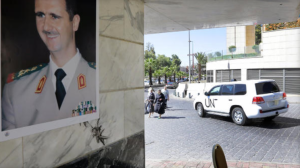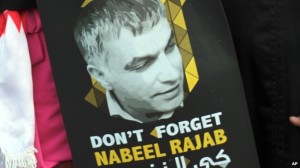By Delisa Morris
Impunity Watch Reporter, South America
CARACAS, Venezuela — Venezuelan President Nicolas Maduro has stated that sanctions placed on Venezuela by the United States could cause his country to shut down its diplomatic missions in the U.S.

The measure, which has cleared the House of Representatives but faces a challenge in the Senate, could “lead to the point of not having an embassy or consulates in the United States, Maduro said Thursday. However, Maduro has praised the Obama administration’s opposition to the bill, saying it has led him to name a new top diplomat in Washington.
The opposition to the bill Maduro is speaking of, is in response to comments by Assistant Secretary of State Roberta Jacobson, who has again urged the U.S. Senate to vote against the bill. Maduro said that he read the remarks “with great attention” and said that the remarks were a “leap toward good sense”. These remarks sparked Maduro to name a new top diplomat in Washington.
The praise from Maduro, however slight, is a change in tide from the plethora of denunciations attributed to the U.S. by the Venezuelan President. Following in his predecessor, and role model, President Hugo Chavez’s footsteps Maduro and his supporters have repeatedly accused Washington of trying to topple his government. Maduro has blamed the U.S. for stirring up the protests in which at least 42 people have died since February.
This week, pro-Maduro Caracas Mayor Jorge Rodriguez announced that the U.S. ambassador to Colombia, Kevin Whitaker, was implicated in a plot to murder President Maduro. This news was announced in the midst of an event where Rodriquez was speaking that included first lady Cilia Flores and National Assembly President Diosdado Cabello. Rodriguez requested that the U.S. government clarify if it knew of Whitaker’s alleged role or if Whitaker was acting without aid.
Jen Psaki, State Department spokeswoman, called the allegation baseless.
Amongst Maduro’s supporters is Russia. Russian Foreign Minister Sergei Lavrov said on Thursday, at a joint press conference with Elias Jaua, Venezuelan Foreign Minister, “[a]ll the problems (of a country) must be solved under the Constitution, without outside interference, or even sanctions or threats of sanctions.” Lavrov added, “[w]e have endorsed our solidarity with the government of Nicolás Maduro, and his determination to both overcome certain difficulties facing Venezuela and engage in dialogue (…) with the opposition.”
Maximilien Sanchez Arvelaiz, former Venezuelan ambassador to Brazil, has been named as Maduro’s new top diplomat in Washington. In February, Maduro named Sanchez Arvelaiz to fill the vacant ambassadorship in Washington, but U.S. officials have not acted on the proposal.
For more information, please see:
El Universal — Russia Takes Issue with US because of Sanctions on Venezuela — 29 May 2014
ABC News — Venezuela Leader Praises US Rejection of Sanctions — 30 May 2014
The Washington Post — Venezuela Leader Praises US Rejection of Sanctions — 30 May 2014
Monterey Herald News — US Slow to Back Sanctions on Venezuela — 21 May 2014

